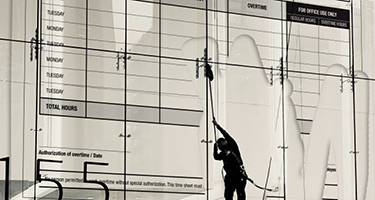One of the unexpected effects of COVID-19 in the legal world has been the impact it seems to be having on lawyers, firms’ culture and how we practice law.
While fostering a “good culture” is hardly a novel concept for law firms, the idea has taken on new importance as we approach 2022 nearly two years into a global pandemic. At some point during this ordeal, the conversation shifted, with many lawyers reassessing their priorities and goals. As discussions grew louder about work-life balance, mental health, emotional well-being, diversity and gender equity, many law firms began to listen and make positive changes that will have long-term effects.
It’s no secret that practicing in a private law firm is hard: meeting billable hours, responding to client needs, marketing, dealing with office politics, navigating the partnership track and building a book of business are only a few of the challenges lawyers face. One thing the pandemic did was enable lawyers and their firms to explore different ways of doing business. People felt more at ease speaking up. Firm leaders embraced new ideas. Lawyers reassessed their goals and priorities. The challenge for firm leaders and lawyers alike as we emerge from the pandemic is how to find the right balance between what is needed to keep clients happy, lawyers engaged and firms profitable. This is no easy task.
As we look ahead to 2022, most of us have received the message that today’s law firm is not the same as it was before the pandemic. Firms have undergone significant—if not seismic—change. Even though the shift in attitude and demands for new ways of doing things were perhaps overdue, many firms were caught off guard and are still trying to catch their breath. And that’s OK. For the new normal to take hold and work long-term, firm leaders and lawyers need time to assess and adjust.
Is there a way to strike a balance in an industry dominated by the billable hour, metrics and the demand that we do more for less? This question keeps me and other leaders of law firms up at night. Even though firms are largely listening, the push and pull between billing hours (i.e., generating revenue) and work-life balance is real. Client demands are real. And the expectations of lawyers are real, as we’ve seen up close with so many leaving practices altogether or seeking a different career path. There must be a way for firms and lawyers to coexist in the world of the billable hour and find balance. The “great resignation” should not be the next big industry trend.
A good starting point on the road to balance is to incorporate the things that we heard (and did) throughout the pandemic into our daily practice in 2022. One of the most talked-about changes is the hybrid work environment. This means different things for different firms, depending on the needs of the business. Having a hybrid-work policy is important, but its implementation is critical. How are lawyers who aren’t physically in the office communicating and being seen? Are supervisors reaching out in the same way to lawyers working from home as to those in the office? Is mentoring still occurring? If having an open-door policy is central to a firm’s culture, how is that being implemented with work-from-home protocols? Are lawyers who are in the office as available to those on their teams who are not?
Another area at the top of the priority list is work-life balance. Many firms promote such balance on their websites, job postings and internal materials. For many, it means finding time away from the daily grind, having an opportunity to turn off the switch, reducing stress but still feeling like your career path is intact. Achieving this balance is not easy, primarily because job pressures are real. Because many of the struggles are the result of a constant time crunch, improving efficiencies through technology, staffing and remote work addresses part of the problem. Changing the mindset of lawyers and firms in favor of acceptance when it comes to unplugging is another way to promote a positive culture.
The concepts of diversity, equity and inclusion are also not new, but during the pandemic we saw people from all backgrounds, geographic areas and businesses seek achievable and sustainable change. Law firms have been a big part of that movement, wanting to do more than just check a box or establish a pro forma policy. The renewed focus on diversity has had a positive impact on law-firm culture because it’s something that matters to people. It also fosters collaboration and engagement within the firm in an area not focused on billable-hour metrics.
One aspect of DEI that has come to the forefront over the past 24 months is how the pandemic disproportionately affected women with many exiting the workforce altogether during COVID-19. Law firms also felt the impact on women. Many women attorneys felt burnt out prompting some to either leave private practice or the profession. As the pandemic wore on, the hybrid work model emerged as one way for parents and caregivers to meet obligations at home while not removing advancement opportunities in the office. While this has had positive effects for all employees, it has had a significant impact on retaining women attorneys.
The importance of mental health and emotional well-being are also key pillars of the emerging law-firm culture. These aren’t new issues for lawyers, but a focus on self-care is something of a fresh concept for their firms—which are now increasingly incorporating mental and emotional health into their employee wellness programs, benefits and discussions and are taking note of the fact that the practice of law can be stressful, along with the many out-of-office challenges that can take a toll on lawyers’ mental health. Firm leaders are setting a new tone, focusing on removing the stigma so long associated with mental-health struggles.
Without a doubt, the pandemic caused shifts in law-firm cultures, policies and plans. Continuing to challenge the norms of pre-pandemic office culture with a focus on balance will be essential in 2022 as firms find their footing on what we hope is at last the other side of the pandemic.
Jody E. Briandi is President/Managing Partner of Hurwitz & Fine, P.C., a Western New York midsize law firm with offices across New York State. She oversees all Firm operations, as well as leads the Firm’s Board of Directors who engages in strategic planning and setting the vision for the Firm. A 25-year + trial attorney, Jody also leads several of the Firm’s general liability defense practice groups.
































